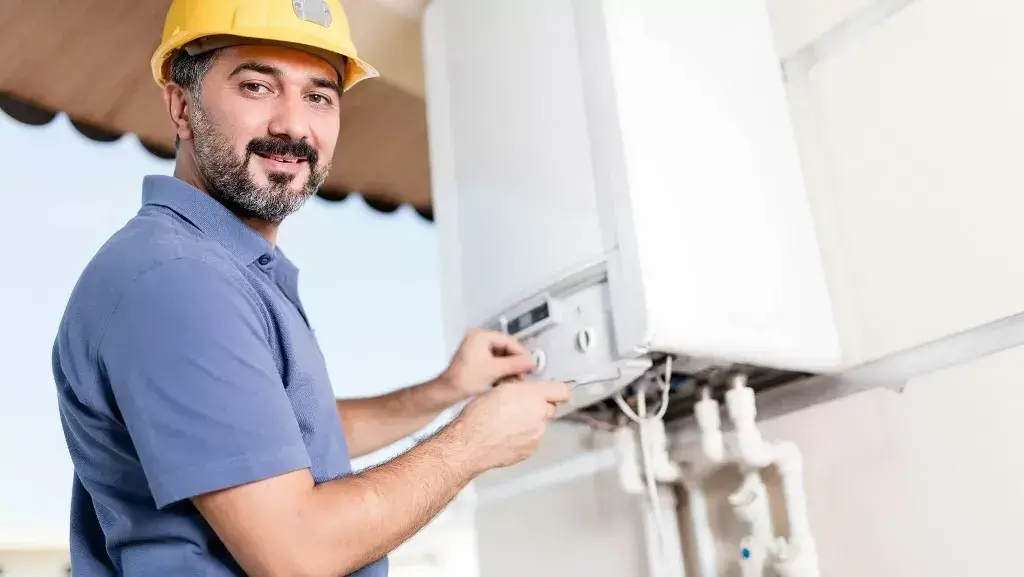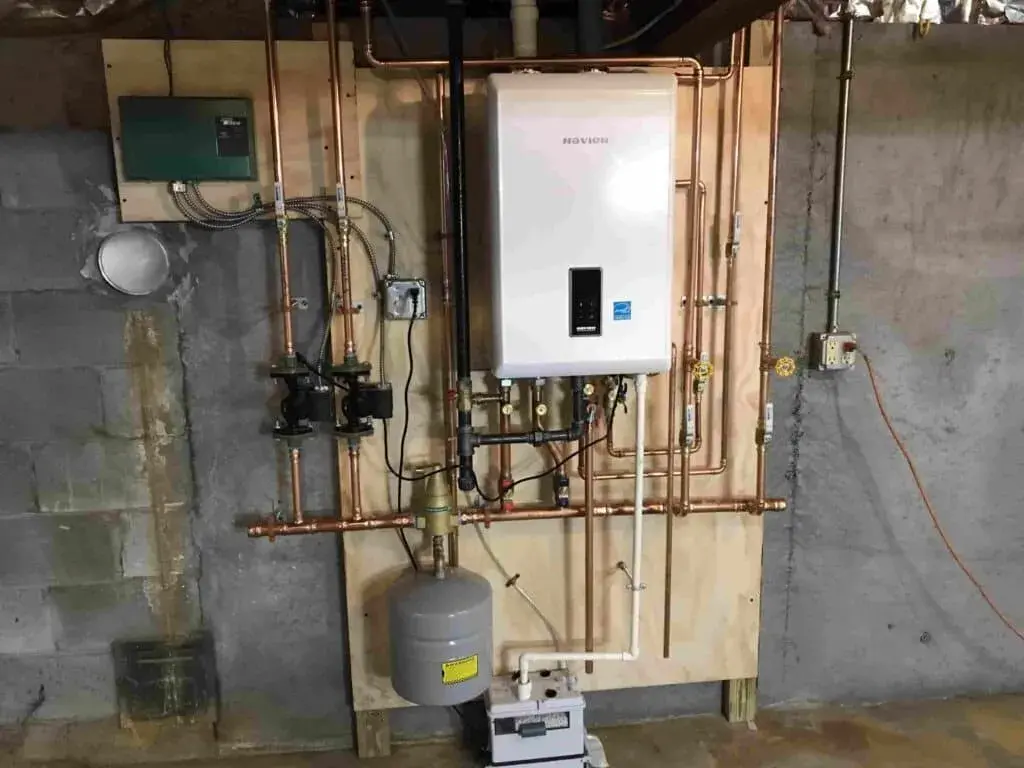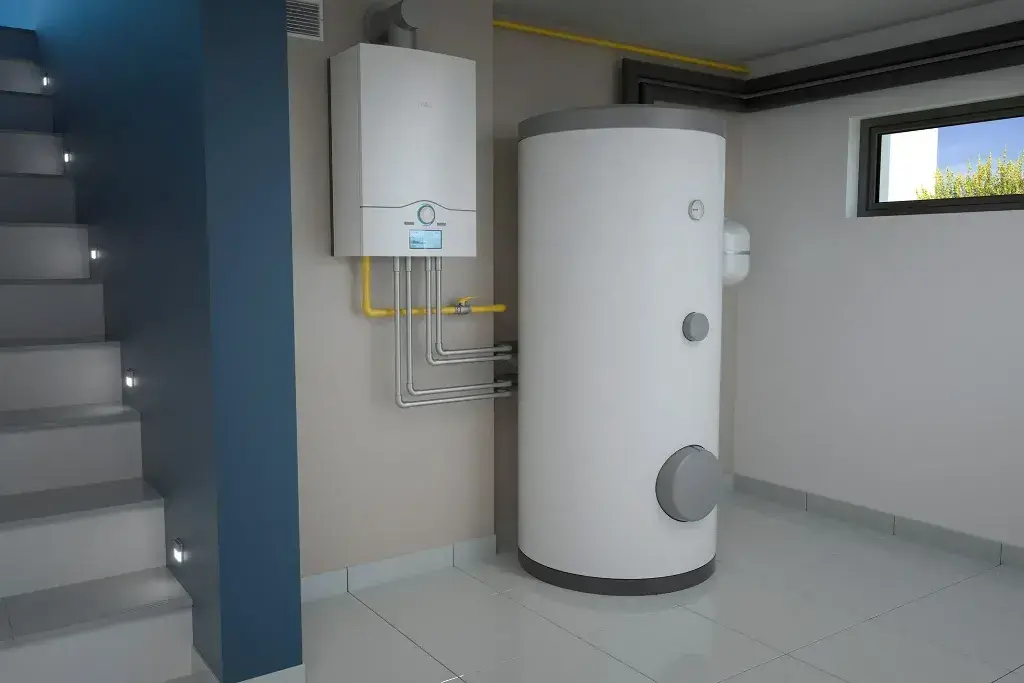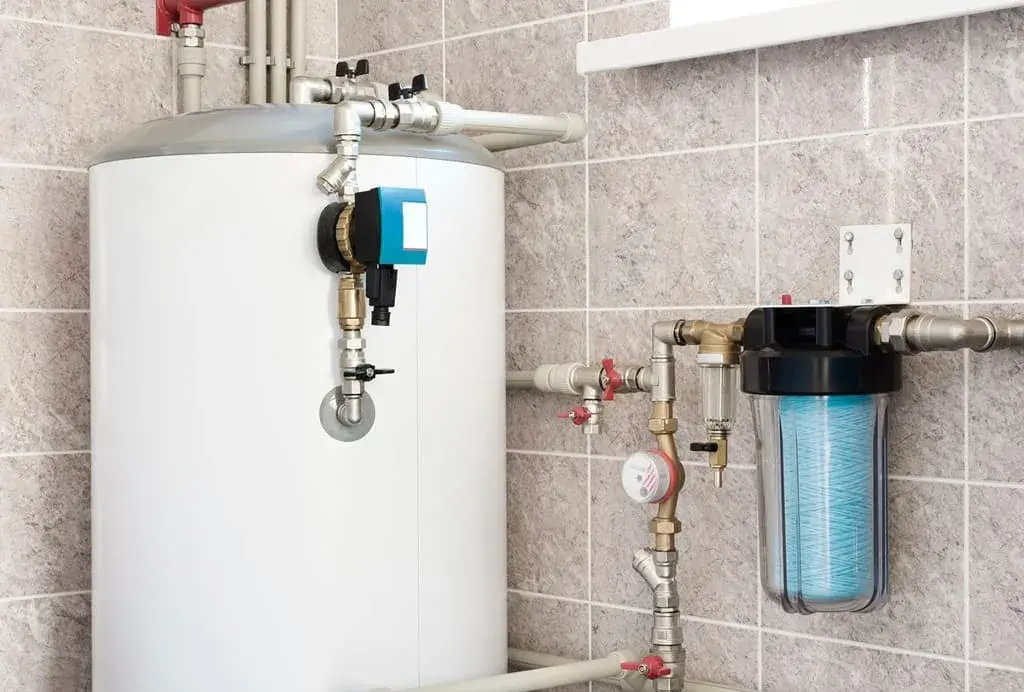Explore this post with:
If you’re in the market for a boiler upgrade or desperately need to replace an old one, you may be unsure which type is best. With different types of boilers suiting different sized households and needs, it can be difficult to know which one is right for your home or business.
There are three main types of boilers. In this article, we’ll take a look at these different types of boilers and help you understand the pros and cons of each.
Conventional Boilers

Conventional boilers, also known as regular boilers, are the most traditional of the boiler types. They work by heating water stored in a tank and then circulating that water through radiators to provide heat for your home or business.
Pros
- Conventional boilers are a good option if you have a large home with multiple bathrooms or if you need a high-pressure water supply.
- They are also relatively straightforward to install, making them a good option if you’re on a tight budget.
Cons
- Conventional boilers can be more expensive to run than other types of boilers, as they require a large tank to store hot water and this heat can be lost, making it less efficient.
- They also take up more space, as they require both a tank and a boiler to be installed in your home.
- Additionally, you’ll have to plan ahead or wait for the water to heat up.
Combi Boilers

Combi boilers, also known as combination boilers, are one of the most popular types of boilers today. They work by heating water on demand and providing hot water for your home without the need for a storage tank.
Pros
- Combi boilers are more efficient than conventional boilers, as they don’t require a large tank to store hot water.
- They are also more compact, making them a good option if you have limited space in your home. They give you instant hot water.
Cons
- Combi boilers may not be suitable for large homes with multiple bathrooms, as they may not be able to supply enough hot water for everyone, instead, they can usually only focus on one place at a time.
- They may also be more expensive to install, as they require a more complex system. Though these are now one of the most common types of boiler, most engineers will be trained on them as standard.
System Boilers

System boilers are similar to conventional boilers, but they have some key differences. Instead of a tank, system boilers store hot water in a cylinder, which is usually located in an airing cupboard or other convenient location.
Pros
- System boilers are more efficient than conventional boilers, as they don’t require a tank to store hot water.
- They are also more compact, making them a good option if you have limited space in your home.
- It’s an ideal choice for providing hot water to multiple bathrooms at once, but still saving space.
Cons
- System boilers can be less efficient than combi boilers, as they still require the cylinder for storing the hot water, rather than providing instantaneous hot water.
- This also takes up more space than a combi, plus the hot water is not instantaneous.
Deciding Which Boiler Is Right for You

As you can see, each type has its own pros and cons. To determine which type of boiler is right for your home or business, it’s important to consider your specific needs and requirements. You should consider factors such as the size of your home or business, your budget, and your energy efficiency goals.
Getting Your Boiler Installed

It’s also important to hire a professional engineer to ensure that your new boiler is properly installed and maintained. In fact, it’s a legal requirement to have an engineer certified on the Gas Safe register to work on, repair, or service any appliance involving gas, as it is such a dangerous substance in the wrong hands.
A poorly installed or maintained boiler can be dangerous and may not function as efficiently as it should, resulting in higher energy bills and potentially costly repairs. It could also lead to gas leaks, fires, and carbon monoxide poisoning.
Final Thoughts
Ultimately, the type of boiler you choose will depend on your individual needs and preferences. Whether you choose a conventional, combi, system, or condensing boiler, it’s important to take the time to research your options and consult with a professional to ensure that you make the best choice.
Understanding the different types of boilers and their pros and cons is the first step in choosing the right one for you. With a little research and the help of an expert, you can find the right boiler to meet your needs and keep your home or business comfortable and energy efficient.
Discover More
About the Author: Nishant Desai
Nishant Desai has over 8+ years of experience in SEO and blogging. His blogging expertise can organically increase online visibility and traffic for blogs and websites. With his SEO expertise, he has already contributed to iGeeksblog, Firstsportz, and Firstcuriosity. In addition, he can create content strategies, conduct keyword research, publish optimized blogs, and resolve technical issues.




